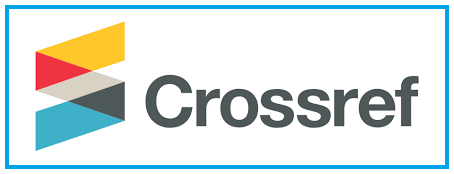LEGALITAS PERUBAHAN TUNTUTAN PADA JAWABAN PENUNTUT UMUM ATAS PLEDOOI TERDAKWA DARI PERSPEKTIF HUKUM ACARA PIDANA.
Keywords:
Legality, Claims, Pledooi, Changes in Claims, Criminal Procedure LawAbstract
In making the prosecution letter, apart from being based on evidence to assess the trial facts which support the criminal act committed by the Defendant, the Public Prosecutor also refers to the prosecution guidelines. Even though the prosecution guidelines have been determined both in the Criminal Procedure Code and in the Attorney General's Guidelines Number 24 of 2021 concerning Handling of General Crime Cases, there is no discussion regarding the mechanism for changing the charges either immediately after reading the charges or after the Defendant or his Legal Counsel read the defense (pleidooi). The legal theory used is the Theory of Legal Certainty and the Theory of Prosecution Authority.
The research method used in this research is a normative juridical approach which is supported by empirical juridical with detailed descriptions, namely a research that begins deductively with an analysis of the articles in statutory regulations related to the Legality of Changes to Claims in the Public Prosecutor's Answer to the Defendant's Pledooi from a Legal Perspective Criminal Procedure. Apart from that, premier data is also used as supporting legal material for secondary data. The legal material analysis technique used is a normative juridical method which aims to provide a prescriptive study with interpretive analysis. The research results show that legal capacity in Law no. 8 of 1980 concerning the Criminal Procedure Code which is implemented in the form of the Principle of Legality in formal criminal law (nullum iudicium sine lege) has been distorted due to changes in the substance of the demands by the Public Prosecutor in the Karawang District Court criminal case Number 256/Pid.Sus/ 2021/PN Kwg, which previously charged the defendant with imprisonment, now demands acquittal. The prosecution is not in line with the provisions of Article 3 of the Criminal Procedure Code which states that trials are carried out in the manner regulated in this law. The authority of the Prosecutor in the event that the Public Prosecutor changes the substance of the charges in the Karawang District Court criminal case Number 256/Pid.Sus/2021/PN Kwg, which previously charged the defendant with imprisonment to demand acquittal has not been accommodated by the Criminal Procedure Code. This is caused by the logical consequences of the provisions of Article 139 of the Criminal Procedure Code. In this provision, the Criminal Procedure Code has from the start given the authority to the Public Prosecutor to determine whether the case file meets the requirements to be able to be transferred to the Court or not. The Public Prosecutor is obliged to hand over the case to the Court with a request to immediately try the case. This is in line with the principle of actori incumbit onus probandi which is known in criminal evidence law.Top of Form
Downloads
References
Adami Chazawi, Pelajaran Hukum Pidana Bagian I, Rajawali Pers, Jakarta 2020,
Andi Hamzah, Hukum Acara Pidana Indonesia, Edisi Revisi, Sinar Grafika, Cetakan Ketiga, Jakarta, 2004.
Cst Kansil, Kamus Istilah Hukum, Gramedia Pustaka, Jakarta, 2009,
E.Utrech/Moh. Saleh Djindang, Pengantar dalam Hukum Indonesia, Sinar Harapan, Jakarta, 1983..
Harun M Husein, Penyidikan dan Penuntutan Dalam Proses Pidana, Rineka Cipta, Jakarta, 1991.
J.G. Brouwer dan Schilder, A Survey of Dutch Administrative Law, Ars Aeguilibri, Nijmegen, 1998.
Juanda, Hukum Pemerintahan Daerah, Alumni, Bandung, 2004.
Jur. Andi Hamzah, Hukum Acara Pidana Indonesia Edisi II, Sinar Grafika, Jakarta, 2008.
L. M Friedman, The Legal System: A Social Science Perspective, Russel Sege Foundation, New York, 1975..
Lisi, I.Z, Hukum acara pidana: Teori & implementasi, Fakultas Hukum Universitas Mulawarman, Samarinda, 2017.
M. Karjadi dan R. Soesilo, Kitab Undang-Undang Hukum Acara Pidana dengan Penjelasan Resmi dan Komentar, Politeia, Bogor, 1997.
Moh. Hatta, Beberapa Masalah Penegakan Hukum Pidana Umum dan Pidana Khusus, Liberty, Yogyakarta, 2009
Mukti Fajar N.D dan Yulianto Achmad. Dualisme Penelitian Hukum Normatif dan Empiris: Pustaka Pelajar, Yogyakarta 2010
Peter Mahmud Marzuki, Penelitian Hukum, Kencana Prenada Media Group, Jakarta, 2005.
Ramlani Lina S, Buku Panduan Penulisan Desertasi dan Tesis, Universitas Jayabaya, Jakarta, 2021.
Riduan Syahrani, Rangkuman Intisari Ilmu Hukum, Citra Aditya Bakti Bandung, 1999.
RM. Surachman, Mozaik Hukum I: 30 Bahasa Terpilih, Sumber Ilmu Jaya, Jakarta, 1996
SF. Marbun, Peradilan Administrasi Negara dan Upaya Administrasi di Indonesia, Liberty, Yogyakarta, 1997.
Sidharta Arief, Meuwissen, Tentang Pengembanan Hukum, Ilmu Hukum, Teori Hukum dan Filsafat Hukum, PT Refika Aditama, Bandung, 2007.
Simons, Leerboek van het Nederlandse Strafrecht, P. Noordhof N.V., Groningen – Baavia, 1993.
Soerjono Soekanto dan Sri Mamudji, Penelitian Hukum Normatif: Suatu Tinjauan Singkat, Rajawali Perss, Jakarta, 2013
Soerjono Soekanto dan Sri Mamudji, Penelitian Hukum Normatif; Suatu Tinjauan Singkat, Raja Grafindo Persada, Jakarta, 2009
Sudikno Mertokusumo, Mengenal Hukum, Liberty Yogyakarta, 1999.
Wirjono Prodjodikoro, 2003, Asas-Asas Hukum Pidana di Indonesia, Refika Aditama, Bandung.
Yahya Harahap, Pembahasan Permasalahan Dan Penerapan KUHAP Pemeriksaan Sidang Pengadilan, Banding, Kasasi, Dan Peninjauan Kembali, Sinar Grafika, Jakarta, 2016.
Zulkarnain, Praktik Peradilan Pidana, Setara Presss, Malang, 2013.
Perundang-undangan :
Undang-Undang Dasar Negara Republik Indonesia Tahun 1945;
Undang-Undang No. 8 Tahun 1981 tentang Kitab Undang-Undang Hukum Acara Pidana (KUHAP);
Undang-Undang Nomor 11 Tahun 2021 tentang Perubahan Atas Undang Nomor 16 Tahun 2004 tentang Kejaksaan Republik Indonesia;
Pedoman Jaksa Agung Nomor 24 Tahun 2021 tentang Penanganan Perkara Tindak Pidana Umum.
Downloads
Published
How to Cite
Issue
Section
License
Copyright (c) 2024 SENTRI: Jurnal Riset Ilmiah

This work is licensed under a Creative Commons Attribution-NonCommercial-ShareAlike 4.0 International License.









